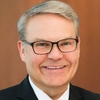Virtual Patent Marking: Practical Considerations, Recent Court Guidance, and Ideas for Designing Your Own VPM Program

Course Details
- smart_display Format
On-Demand
- signal_cellular_alt Difficulty Level
Intermediate
- work Practice Area
Patent
- event Date
Thursday, July 13, 2023
- schedule Time
1:00 p.m. ET./10:00 a.m. PT
- timer Program Length
90 minutes
-
This 90-minute webinar is eligible in most states for 1.5 CLE credits.
-
Live Online
On Demand
This CLE webinar will guide patent owners and their counsel through virtual patent marking issues, nuances, pitfalls, and issues related to licensing that have patent marking clauses and what that means for your virtual patent marking program. The panel will also review traditional/physical marking and false marking. The panel will examine how courts are deciding issues related to virtual patent marking. The panel will provide practical experience and ideas for your consideration. The panel will also offer best practices for virtual marking of patented items and minimizing liability risks.
Faculty

Mr. Peters counsels clients on patent, trademark and copyright prosecution; patent and trademark clearance, validity and infringement opinions; trademark opposition and cancellation; IP due diligence investigations, licensing and audits; and internet issues. His patent prosecution practice involves mechanical, electromechanical, system, business methods and design patents. Mr. Peters has filed, prosecuted and secured thousands of patents and trademarks domestically and internationally, and uses that experience to counsel clients on IP strategies, risk management and portfolio design, coordination and management.

Mr. Wheelock’s practice includes the preparation and prosecution of patent and trademark applications and drafting intellectual property agreements, including non-compete agreements. He has brought and defended lawsuits in federal and state courts relating to intellectual property and has participated in seizures of counterfeit and infringing goods. Mr. Wheelock prepares and prosecutes U.S. and foreign patent applications for mechanical and electromechanical devices, manufacturing machinery and processes, and metal alloys for clients in the medical device, consumer products, and agrifood tech industries, among others. He also does a substantial amount of patentability searching, trademark availability searching, and patent and trademark infringement studies.

Mr. Zuege focuses his practice on intellectual property law in both transactional and litigation settings, including patent, trademark, copyright, trade secret and domain name dispute matters. This includes international IP application filings and prosecution such as Paris Convention patent applications, PCT applications and related national stage patent applications, and the coordination and supervision of global IP portfolios. Mr. Zuege has extensive experience organizing and conducting complex freedom-to-operate studies, advising on IP strategies, conducting validity/non-infringement opinion of counsel analyses, negotiating agreements, enforcing rights and defending clients in contentious IP disputes, and creating strategic plans for companies. He also writes and speaks about IP issues, and can translate complex legal issues into actionable tips and strategies for clients and their inside counsel. He is the editor and co-author of Patent Freedom to Operate Searches, Opinions, Techniques, and Studies (ABA 2017).
Description
There are many potential benefits to patent marking. A thoughtfully designed patent marking program, tailored to your business, can help deter copying, maximize infringement damages, enhance negotiation leverage, and possibly even enhance the value of your patent portfolio. There are additional advantages to using virtual patent marking including using a URL link and a website to efficiently and cost effectively provide constructive notice to the public of your patents associated with particular products.
However, there's still a fairly high level of confusion and hesitance among patent owners about what a virtual patent marking program requires to be successful. We'll break down what you need to do to make virtual patent marking less daunting and more manageable. We'll also present and discuss new issues continuing to arise that haven't been resolved in litigation.
Listen as our authoritative panel of patent attorneys examines virtual patent marking. The panel will focus on virtual marking, including how courts are beginning to evaluate what is sufficient for virtual marking. The panel will go through examples, discussing some of the pitfalls and where there continues to be uncertainty. The panel will also offer best practices for virtual marking.
Outline
- Virtual patent marking
- Statutory requirements
- Court treatment and areas of uncertainty
- Examples of virtual marking
- Common implementation questions
- Best practices
Benefits
The panel will review these and other key questions:
- What factors must be considered when determining whether to use virtual patent marking?
- How are the federal courts treating virtual patent marking?
- What steps can patent owners and their counsel take to develop their virtual patent marking program?
Unlimited access to premium CLE courses:
- Annual access
- Available live and on-demand
- Best for attorneys and legal professionals
Unlimited access to premium CPE courses.:
- Annual access
- Available live and on-demand
- Best for CPAs and tax professionals
Unlimited access to premium CLE, CPE, Professional Skills and Practice-Ready courses.:
- Annual access
- Available live and on-demand
- Best for legal, accounting, and tax professionals
Unlimited access to Professional Skills and Practice-Ready courses:
- Annual access
- Available on-demand
- Best for new attorneys
Related Courses

Design Patents and the Hague Agreement Option: Evaluating the Benefits and Risks of Filing
Tuesday, July 1, 2025
1:00 p.m. ET./10:00 a.m. PT